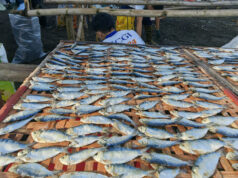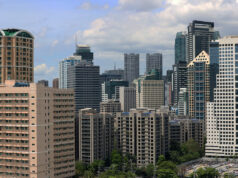A BILL granting tax relief to businesses and monthly cash assistance to residents affected by continuing restrictions on business in Boracay island has been filed at the House of Representatives.
House Bill 8537, which if passed will be called the Boracay Cleanup Shutdown Assistance and Ecological Sustainability Act, also proposed to establish a fund to support a master plan for the Boracay-Malay-Caticlan area. Malay is the municipality with jurisdiction over Boracay while Caticlan is the district of Malay hosting the main jetty port to the resort island from Panay.
1-CARE Rep. Carlos Roman L. Uybarreta filed the bill in response to the tourist arrival restrictions imposed on the island since it reopened last Oct. 26.
“With all these limitations, the financial health of Boracay businesses, employees, and residents will certainly be troubled this year and in 2019,” Mr. Uybarreta said in a statement, Monday.
According to the Department of Environment and Natural Resources (DENR) and the Department of Tourism (DoT), Boracay island has been assigned carrying capacity of 19,200 people per day. Net of permanent residents, this amounts to 6,405 visitor arrivals. The Tourism department, ahead of the island’s reopening on Oct. 26 after a six-month cleanup, said only 157 establishments were accredited to operate.
The bill proposed to allow an extraordinary operating loss deduction, which is equivalent to 50% of the operating loss recorded in 2018.
The one-time deduction will cover businesses operating on the island as well as in Malay itself.
Mr. Uybarreta also proposed that the Department of Social Welfare and Development (DSWD) extend a P700 monthly cash grant to every household member under the Pantawid Pamilyang Pilipino Program (4P)and P500 to non-4P members of households whose monthly income is less than P20,000.
He proposed a Boracay Sustainability Fee of P20 charged to every airplane or ship passenger traveling to and from the island.
The Boracay Ecological Sustainability Fund will be managed by a council, led by the Secretaries of Environment and Natural Resources and Tourism, local executives and representatives of the business and civil society sectors. — Charmaine A. Tadalan



